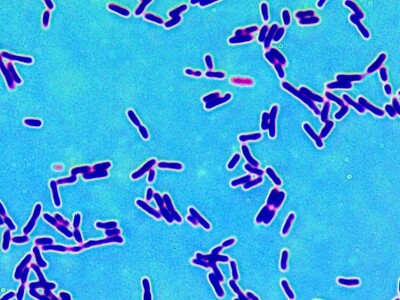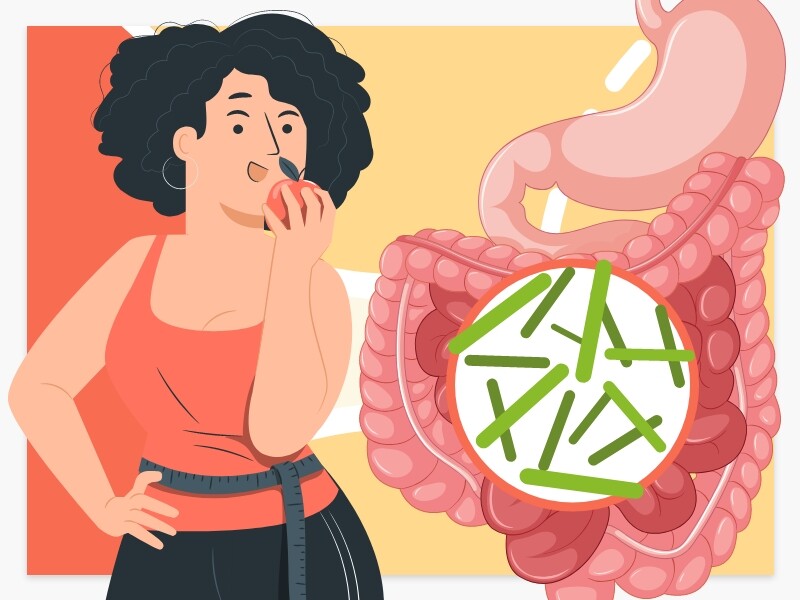What is Lactic Acid Bacteria?

Consumers increasingly demand natural and beneficial foods to improve their health and well-being. Probiotics play an important role in such demand, and dairy foods are commonly used as vehicles for such bacteria, represented predominantly by lactic acid bacteria. Lactic acid is one of the most significant groups of probiotic organisms commonly used in fermented dairy products. Among other benefits, these microorganisms can enhance lactose digestion, stimulate the immune system, and prevent and treat diarrhea.
What is Lactic Acid Bacteria?

Lactic acid bacteria (LAB) are a heterogeneous group that plays a significant role in various fermentation processes. They ferment food carbohydrates and produce lactic acid as the main product of fermentation. In addition, the degradation of proteins and lipids and the production of various alcohols, aldehydes, acids, esters, and sulfur compounds contribute to the specific flavor development in different fermented food products.
The main application of LAB is starter cultures, with an enormous variety of fermented dairy, meat, fish, fruit, vegetable, and cereal products. Besides, they contribute to fermented foods’ flavor, texture, and nutritional value, and thus they are used as adjunct cultures. Acceleration of cheese maturation, enhancement of yogurt texture with the production of exopolysaccharides, and control of secondary fermentations in the production of wine are some examples. The production of bacteriocins and antifungal compounds has led to applying bio-protective cultures in certain foods. Moreover, the well-documented health-promoting properties of certain LAB have led to the addition of selected strains, in combination with bifidobacteria, as probiotic cultures with various applications in the food industry.
Lactic acid can boost the quality of your food’s nutrition. While the lactic acid added to desserts, canned fish, and carbonated drinks is not very healthy, the naturally produced lactic acid in fermented foods such as kimchi and yogurt offers a variety of health benefits:
- Strengthening your immune system
- Helping your body absorb minerals and vitamins
- Giving your food antioxidant effects
- Protecting you from vaginal and urinary infections
Some strains of lactic acid bacteria found in food are probiotics, such as those belonging to the genus Lactobacillus. This means many foods high in lactic acid have probiotic qualities and can boost your gut health. Lactic acid can also protect you from constipation and other gastrointestinal issues.
What Food Contains Lactic Acid Bacteria?
Lactic acid is found in a variety of foods. It is produced naturally due to fermentation or added to certain ingredients as a preservative.
Here are some common foods that naturally contain lactic acid:

- Sauerkraut
- Sourdough bread
- Beer
- Cheese
- Miso
- Kimchi
- Pickled vegetables
- Kefir
- Yogurt
- Cheese
Here are a few foods that may contain lactic acid as a preservative:
- Salad dressing
- Olives
- Cheese
- Frozen desserts
- Carbonated drinks, such as soda
Note that cheese is listed twice, as lactic acid can be both a byproduct of the cheese-making process and included as a preservative in some cheeses.
Do Probiotics Help With Lactose Intolerant?
Lactose intolerance is the inability of the body to digest lactose, a type of natural sugar found in milk and dairy products. For lactose to be absorbed easily into the bloodstream, it is broken down into two monosaccharides – glucose and galactose – in the small intestine by an enzyme known as lactase.
When there isn’t enough lactase to break down lactose in the small intestines, the undigested lactose moves into the colon, where bacteria metabolize it. This metabolic process produces short-chain fatty acids and gases like hydrogen, carbon dioxide, and methane. It could explain some gastrointestinal symptoms lactose intolerant individuals experience, such as flatulence, bloating, and stomach cramps1. Undigested lactose also promotes increased acidity in the colon and increases osmotic pressure, which could cause diarrhea.
Each individual will have their level of dairy tolerance, and the composition of our gut microflora is unique to each individual. Still, several studies have found that probiotics in yogurt drinks and non-dairy probiotic supplements could help aid the digestion of lactose.
Fermented dairy products containing live cultures are often better tolerated by lactose-intolerant people. Several studies have found that these individuals respond better to yogurts than milk with the same amount of lactose. One explanation is that fermented foods can delay gastric emptying, which means lactose can sit longer in the small intestine, and more lactose can be broken down before it moves into the colon. So, if you are lactose intolerant, it is worth considering probiotics and fermented foods as part of your health regime.






